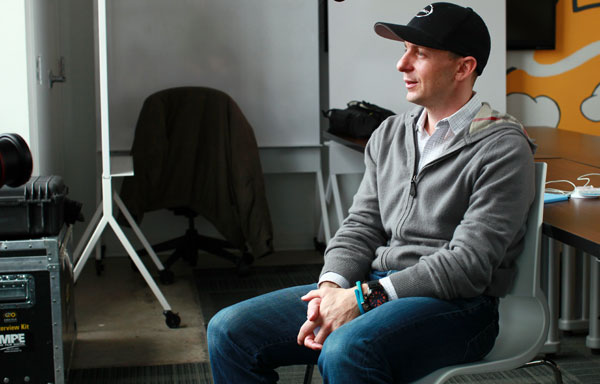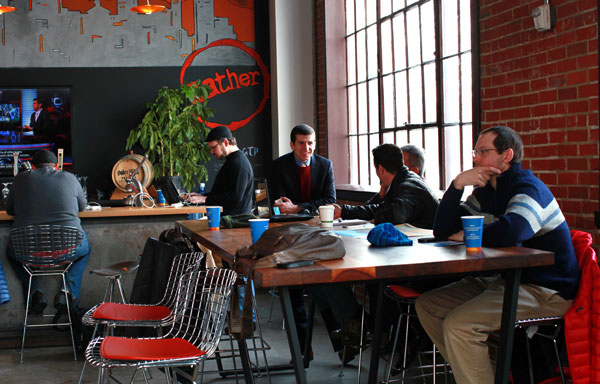There’s been a growing resurgence of working areas of long tables with copious amounts of white boards. They call them co-working spaces. Since the coining of the phrase in early 2000s, they’ve grown into warehouse size places with cubical conference rooms and modern furniture, becoming a hip thing for entrepreneurial ecosystems and startups across the globe. But recently, I’ve come to a realization: Co-working spaces are lame.
The idea of sharing a space with like-minded people where you can come in, get your work done and maybe make some new connections is great. But it’s not enough anymore. As entrepreneurial ecosystems grow all over the globe and in cities everywhere, a common place where people can work on their laptops in posh furniture doesn’t meet the need these ecosystems now face. More and more people are turning to the arena of entrepreneurship to pursue their passions, and as they do, they need help getting acclimated to the community. People need to make acquaintances that can invalidate their assumptions, help create their websites and be friendly ambassadors to the startup community they are entering.
The phrase co-working space has become too sterile. It doesn’t begin to encompass all that these places need to be today. We have to move past this idea that cool places to work are all that entrepreneurs need to thrive. That’s a great idea. A great idea to get started with, but like all startups, the idea needs to expand and mature to reach that growth stage all entrepreneurs seek.
There should be mentoring opportunities for the more experienced entrepreneurs to influence the rookies. There should be community events such as 1 Million Cups or Failure Nights held in these spaces. Coding classes for people wanting to become developers or improve their Ruby skills. There should be spaces where those hard at work can take a break to escape the glare of a computer screen and caffeinate, hydrate or inebriate. Granted some of these things take time, volunteers or money but if these places are cultivating a sense of community, it would be easier to find people to offer these things up.

I have to admit I didn’t come to this conclusion all on my own. I’ve spent this week in Denver, Colo. getting to know the ecosystem while filming the next edition of ID8 Nation. While here, we ventured to a place, that on first glance, I would normally call a co-working space, but after spending an entire day at Galvanize, I found it was something so much more, and Jim Deters said it first.
“Co-working space just sounds so lame, doesn’t it? It doesn’t begin to cover what we’re trying to do here,” Deters said, sitting inside one of the conference rooms that hosts 1 Million Cups every Wednesday morning for anyone and everyone who wants to join, whether you’re a member of Galvanize or not.

Galvanize represents the mecca of “co-working spaces”. A café and a bar are located in the front of the building when you walk in. It opens up to an open area of couches and tables available to anyone who wishes to work on their startup or just enjoy an intriguing pour-over coffee (or a draft ale in the appropriate hours). The second part of the building has the typical long tables and comfy sitting area where computers liter every surface. Entrepreneurs pay a fee to work in the space, with more established companies taking up the glassed-in offices that line the perimeter of the room. Finally, the third part of the building is an upstairs computer lab that is home to the gSchool, a 6-month coding school for developers.
Now, I’ll be the first to say this is a lot to ask from every co-working space, but the mentality is not. Co-working spaces should be the connection between entrepreneurs and community. It has to be more than just a work space. The entrepreneurial journey is isolating and lonely enough as it is, these places should be a refuge where people come to go to find something they can be a part of.
“I just created exactly what I wanted and needed as an entrepreneur when I first moved to Denver from Chicago many years ago,” Deters said. “When I came in I didn’t know who to talk to or where to go, or where the entrepreneurs even were.”
Co-working spaces need to take on the role of community builders, because they already draw in the one thing that is mandatory for building an entrepreneurial ecosystem: entrepreneurs. The time for resting on your laurels and feng shui furniture is over. It is time to take your place in the role of community builder. It’s time to grow up.